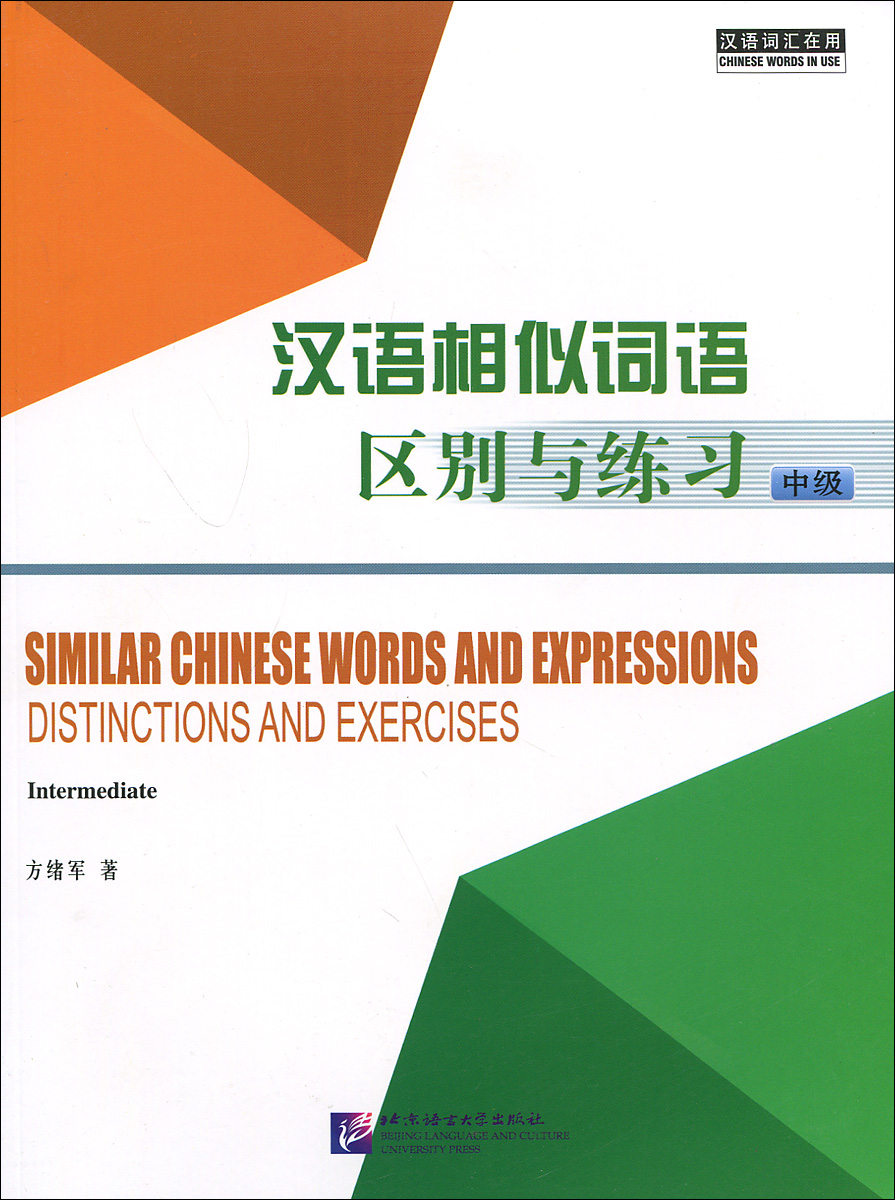Книга: Fang Xujun «Similar Chinese Words and Expressions: Distinctions and Exercises»

|
В китайском языке есть много слов и выражений, которые похожи в произношении, по смыслу или в использовании. Они называются подобные слова и выражения. Сходство между этими словами может вызвать сложности у учащихся в правильно понимании и использовании их. Эта книга поможет разобраться со сложными словами. Paperback. Pub Date: 2013-11-01 Pages: 526 Language: Chinese Publisher: Beijing Language and Culture University Press. Chinese is similar to the difference between words and practice (Intermediate) Features: The closing words of Chinese international education with early. intermediate words text containing 544 words similar group. 1. 172 words (Intermediate 830 words) appendix containing similar group of 149 words. 315 words Each group includes three sections: similar - the difference - Exercises and answers explain and easy to understand language sentences concordance included instructions legend headword or similar body shape Appendix word pronunciation (with the same)... Издательство: "Beijing Language and Culture University Press" (2013) Формат: 180x240, 526 стр.
ISBN: 978-7-5619-3668-9 Купить за 1959 руб на Озоне |
Другие книги автора:
| Книга | Описание | Год | Цена | Тип книги |
|---|---|---|---|---|
| Similar Chinese Words and Expressions: Distinctions and Exercises: Elementary | The book contains about 800 similar Chinese words in 400 groups classed as the first level vocabulary by Chinese international education. They are similar in meaning or form or voice. This book will… — Beijing Language and Culture University Press, (формат: 180x240, 526 стр.) Подробнее... | бумажная книга |
См. также в других словарях:
Christianity — /kris chee an i tee/, n., pl. Christianities. 1. the Christian religion, including the Catholic, Protestant, and Eastern Orthodox churches. 2. Christian beliefs or practices; Christian quality or character: Christianity mixed with pagan elements; … Universalium
theatre — /thee euh teuhr, theeeu /, n. theater. * * * I Building or space in which performances are given before an audience. It contains an auditorium and stage. In ancient Greece, where Western theatre began (5th century BC), theatres were constructed… … Universalium
china — /chuy neuh/, n. 1. a translucent ceramic material, biscuit fired at a high temperature, its glaze fired at a low temperature. 2. any porcelain ware. 3. plates, cups, saucers, etc., collectively. 4. figurines made of porcelain or ceramic material … Universalium
China — /chuy neuh/, n. 1. People s Republic of, a country in E Asia. 1,221,591,778; 3,691,502 sq. mi. (9,560,990 sq. km). Cap.: Beijing. 2. Republic of. Also called Nationalist China. a republic consisting mainly of the island of Taiwan off the SE coast … Universalium
education — /ej oo kay sheuhn/, n. 1. the act or process of imparting or acquiring general knowledge, developing the powers of reasoning and judgment, and generally of preparing oneself or others intellectually for mature life. 2. the act or process of… … Universalium
Buddhism — Buddhist, n., adj. Buddhistic, Buddhistical, adj. Buddhistically, adv. /booh diz euhm, bood iz /, n. a religion, originated in India by Buddha (Gautama) and later spreading to China, Burma, Japan, Tibet, and parts of southeast Asia, holding that… … Universalium
